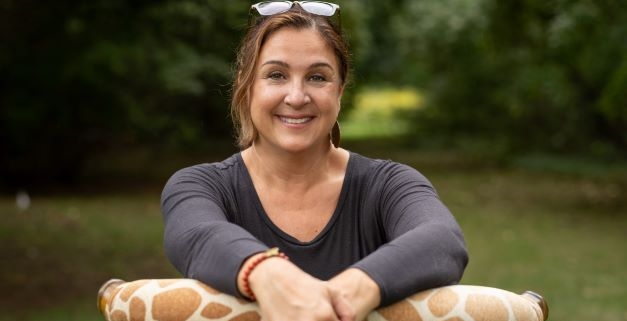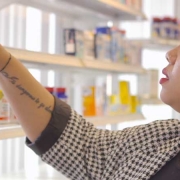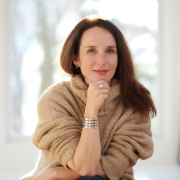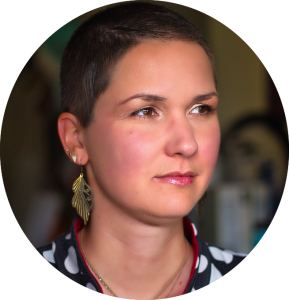Interview with EDS advocate Donna Sullivan, TCAPP, about wrongful child abuse allegations and medically complex children
For our Chronic Pain Partners Post newsletter, I spoke with Donna Sullivan, board member of The Coalition Against Pediatric Pain (TCAPP). Sullivan lives with EDS and has several affected children as well. In this interview, she shares with Chronic Pain Partners her decade-long experience working with families accused of child abuse due to a medically complex child, a film project on the same topic she has been planning for years, and how her organization supports these families.
Karina Sturm:
Hi Donna! It’s so good to finally see you again. It’s been a while since we last connected. Today, I wanted to talk to you about your organization and how you support families with EDS kids. Can you first tell me a bit about TCAPP and what you do for the organization?
Donna Sullivan:
The Coalition Against Pediatric Pain, which is celebrating its ten-year anniversary this year, is a group of parents who ten years ago had children that were struggling in a pediatric pain program. They recognized their kids weren’t getting better. They formed to support each other and try to help each other’s kids. Over time, they began to realize their kids had a lot of the same symptoms, and they started to learn about Ehlers-Danlos syndrome. They formed a non-profit because they recognized that pain is a difficult topic in the medical community, especially chronic pain, and that there weren’t any resources for children. Eventually, over time, most of the kids from the founders turned out to have Ehlers-Danlos syndrome.
Sturm:
Interesting.
Sullivan:
It was a very confusing time because their children were having issues with dizziness and fainting, knees subluxing, shoulders dislocated, and they simply were not believed. Doctors were telling these parents that it was anxiety or attention-seeking behavior… and they believed it because back then, there was nothing known about EDS. So these kids, unfortunately, were pioneers and went into some very dark places and had to deal with the impact of misdiagnosis. Their medical needs were not recognized.
Today, we have the benefit of knowing that it was Ehlers-Danlos syndrome. Proactive and preventative care is an essential part of long-term well-being. Unfortunately, these kids didn’t get any of that. The original TCAPP moms have mostly fought for their kids to get the medical care that was needed. In the early days, they had to focus on support and education. So they’d have yard sales to raise money and they would bring in physicians that knew something about connective tissue disorders, dysautonomia or mast cell activation syndrome. They would organize think tanks, and the doctors would come together and compare notes.
Many of these doctors went on to be involved in the EDS Society, Chronic Pain Partners and other EDS programs. So TCAPP no longer had to fulfill that role of educating. Today, we focus on our efforts on supporting kids and families and being there to just listen whenever a child’s in crisis. Sue Pinkham and Cheryl Myers, who today run all of the day-to-day TCAPP activities, offer a SEND A SMILE program that sends gifts and notes to children who are experiencing hardship, surgeries, or are just isolated and feeling alone.
Parents who have trouble finding EDS-aware doctors or problems navigating the system will come to us for recommendations or information. Unfortunately, there is still a lot of work to do in terms of raising awareness. Many kids are still misdiagnosed or even turned away from care as they are seen as complicated. But one of the pioneering achievements that these TCAPP mamas accomplished was to start the first pediatric pain camp for kids living with EDS and chronic pain. They host pediatric pain week in partnership with the Center For Courageous Kids in Scottsville, Kentucky. It’s been running for six years now. The first year was so special: to bring all these kids together who had never met other kids like them face to face, who might be in a wheelchair one day and then able to walk the next and not be questioned about it. That was tremendous. The kids make friends who understand what living with a chronic and unpredictable illness can do to your social life. It has been so wonderful to see these kids connect and support each other.
TCAPP has also been on the forefront of another issue that impacts rare families, but a topic that is a bit more complicated. Six or seven years ago, we started noticing more and more families that were being questioned in hospital settings and investigated by Child Protective Services. Imagine having a child who is sick and suffering and when you push for answers you suddenly are questioned or accused of having a psychological issue? When we first started to see it, families would come to us, and your guard was up because there’s nothing more important in the world than protecting children. But the more and more families that came to us, we started seeing patterns. It became almost predictable which families could run into problems because of the medical conditions that their kids had. We began to see profiles and started to understand the complex issues in our highly specialized healthcare system that are contributing to this growing problem. As a non-profit, in the beginning, this was a strange position to be in because we didn’t know whether other organizations saw the same issue happening. Were we the only ones? We started reaching out to others, and sure enough they know about this problem, too.
Sturm:
Donna, why are these child abuse allegations so common for parents with medically complex children?
Sullivan:
It’s a complicated problem because it’s a combination of a lack of awareness, and at the same time, our healthcare system is too specialized. In spite of online portals and other technology, doctors do not always have time to communicate well. On top of that you have a new position that was created in the US: a child abuse physician who is not trained in rare diseases and, often, operates with complete authority.
And Ehlers-Danlos has a very strange history of unconscious bias. For years, it was considered a problem of loose joints. Ironic since collagen is everywhere in the body, why wouldn’t it affect organ systems, too?! Patients were viewed as psychological or “malingering.” By not being able to get care, patients would become more desperate and sometimes difficult. And it is hard to summarize years and years of unresolved issues in a fifteen minute doctor’s appointment – so quite frankly, some physicians felt it was too much to take on.
Over the last six or seven years, we have just seen more and more cases. And unfortunately, when these cases are not well investigated early on – when parents aren’t able to get second opinions, or physicians are not willing to look a little deeper to see if they’re missing something or if it is a rare disease – the kids can be taken from the home. Something called medical kidnapping has also been increasing.
But fortunately, in the last two years, it has been starting to get a little bit more media attention. That is helpful because I cannot overstate how devastating it is to have a parent be accused of hurting a child when they’re innocent. And I know so many parents who have. So to answer your question in short: Our non-profit supports families, and this was a need our families. We had no choice but to become involved.
Sturm:
How many families who have been accused of child abuse have you supported over the years?
Sullivan:
That’s a good question. There are a couple of moms who work with me on these cases; one, in particular, is an expert because she has a medical background. But she was silenced because she was accused. And that’s what happens when a parent is accused. They have to be quiet and just do whatever they can to protect and keep custody of their child. But I would say I’ve done dozens if I had to put a number on it. I probably personally have done 50, but I am in contact with other parents who are also supporting these cases.
Sturm:
Wow. That’s shocking!
Sullivan:
Yes. We’ve had families reach out to us from other countries, too. And that’s just me. There are other advocates doing what we do. In these cases, it is always “guilty until proven innocent.” What I do in those circumstances is listen and then try to help guide them for legal support. We can help them find attorneys who understand what all the issues are and then encourage counseling because the mental health toll is brutal. And then the financial burden is incredibly challenging. I’ve seen parents destroyed. Then a year or two later, when they finally get their case settled and their children returned, there is never an apology. And this label just sticks. The parents also have a child who is now likely traumatized by the process. It is very tragic.
Sturm:
Can you share the consequences for these families when they are wrongfully accused of child abuse? What have you personally witnessed?
Sullivan:
I see a lot of families that are already under a lot of stress, right? They have a medically complex child; they have to travel out of state to get the care they need. They already face a tremendous financial burden. Now, this family is additionally accused of child abuse. This puts you in a whole different category, not only because it could most likely be in your medical record. As soon as the charge is made, the parents lose the ability to make medical decisions for their children, and their custody is now threatened. One of the things that we see a lot more now is that medically complex children, for example, children with a feeding tube or who have mitochondrial disease or other comorbid conditions, are called “over medicalized” as a consequence of these allegations. Then the hospitals will try to demedicalize the child, which means taking them off a certain medication or removing a neck brace.
Sturm:
That’s horrible! How is that legal?!
Sullivan:
For the parent who may have seen their child make massive gains because of that neck brace or because of that feeding tube, to see that taken away and have no control over it, that’s hard. So what’s the collateral damage? Well, it’s the children. The PTSD that these families go through and the trauma that these children experience are indescribable.
CPS people don’t know how to handle these cases. They’re not doctors. They’re not set up to do this. So what they do is delay. These cases can take a long time, and during that period, while CPS tries to sort it out, the parents are in limbo. They may or may not be able to see their kids, and their kids are separated from their families.
I have one mum right now. She’s in a state with a lot of corruption in their CPS system. And she was sharing with me how she spent $200 (she didn’t have) to get her daughter’s birthday present to her on time, only to find out it was never given to her. She hasn’t been allowed to see or talk to her child in almost two years. No visits, no phone calls, no Zoom. Nothing for nearly two years. Now, this is a particular case where the mom got two different opinions and had to make a choice. A choice that she has a constitutional right to make by the way. It was really a disagreement between two hospitals. I guess what I struggle with and why I continue to do the work is because I don’t understand why the mother is the reason for this? It seems very misogynistic because the mother didn’t make the diagnosis; neither did she place the feeding tube. Physicians did, and insurance covered it. So how is it the parent that’s over-medicalizing their child?
Sturm:
Yeah, I agree. And in the end, the children are traumatized for life, and their health might have declined drastically during the time when they did not get appropriate care.
Sullivan:
Yeah, unfortunately, it goes even further. The foster care system has a lot of its own challenges. It has had very sick kids taken and placed in sub-optimal homes. I have three cases where kids were sexually abused in foster care. It’s horrific.
Sturm:
Oh, shit! It makes me sick hearing this. I am sorry.
Sullivan:
My heart is with those mums and those kids 24/7, to be honest. And these kids want to talk about it. They’re angry; they’re frustrated. A big part of what we do at TCAPP is we try to explain to them that they didn’t do anything wrong; that this is a problem in the system that they fell into. Then we just hold their hands, hug them and let them cry. It’s a very dark, hard place to be. I also have been blessed to have so many families come out of it relatively quickly and go on to be okay. Those families advocate and help other families now. That’s the positive part: there is a lot of strength in the community.
Sturm:
Now you made a film about exactly that issue. Can you share a couple of details of what the film is about?
Sullivan:
Absolutely. We had a particular family that we were supporting many years ago. The daughter was taken away. This case was in Florida. The mom came to us, and one of our advocates tried to help. The hospital had taken custody of her daughter, and she was demedicalized and not doing well. The mother was so desperate that she took her own life. And it broke me. It broke all of us. We cried for three days. And I talked with other TCAPP moms at the time and said, “We’ve got to do something. We can’t just let this keep happening!” The next thing I know, I am sitting down, and I am writing a treatment for a film. My background was in production. I wrote a 20-page treatment, and I laid out the problem. I laid out all the physicians who were aware of the problem, that were working on it, and some of the attorneys that I knew.
We wanted to find someone who we could trust to tell our story. One of our moms had just seen a film called “Under Our Skin” by a director named Andy Abraham Wilson. It was about chronic Lyme disease. It touched upon the medical controversy around chronic Lyme and what happens to patients when they can’t get the care that they need, and how they suffer. He did a brilliant job. So we reached out to him. I cold-called him, and he called me back and said, “I’ve never really had someone deliver a whole documentary to me like this. You’ve got quite a story, and we need your help.” And he, to his credit, did some research, embedded it all, and took us on and started the project. Five years ago, when we started, we were looking for funding, and nobody would touch it. “Medical kidnapping? This doesn’t happen,” they would say. For his other films, Andy was able to get support from the community. But this is one of these topics that is difficult. So all the money that has been raised has been internal, but we are getting there. Andy has been following families for almost five years.
Sturm:
Wow. I’d call that determination!
Sullivan:
Andy has been interviewing physicians and attorneys, and I am consulting producer. The purpose of the film is not to point fingers. It’s to problem-solve. We want to show people how this can happen in our healthcare system, why families fall into this trap, and what happens to the people who do. The hope is that we’re going to create this film to educate physicians and patients about this problem. My dream would be to finish the film and have screenings at medical schools then go in and talk about how we stop traumatizing these families.
Sturm:
When do you plan to release the film?
Sullivan:
We aren’t ready to give a definite date but hopefully early 2023.
Sturm:
Awesome. Maybe I could talk to Andy once the film is out and let him tell me about his experiences producing a movie like this. He isn’t part of the EDS community, is he? So this must have been quite an interesting experience for him.
Sullivan:
Honestly, onboarding him to our community was a lot, right? There was a lot he had learned.
Sturm:
Yeah. (Laughs). I can imagine it can be overwhelming if you have never heard about any of these issues, then the first time you do, it’s related to child abuse allegations. That’s a deep dive right there.
We definitely need to continue this conversation with him on board soon. But before we end this interview, is there any advice you could share with us for families that have this happening to them right now? What can or should they do?
Sullivan:
I think the most important thing to do is try to build yourself a medical team that understands Ehlers-Danlos syndrome and that you can trust. If you find yourself in a hospital setting, or another situation where you feel like physicians may not understand what they’re seeing and the situation could be turning in the direction of child abuse allegations, it’s imperative to communicate. Use your primary care provider for this. You need to have a strong PCP who stands behind the medical decisions. Additionally, it’s good to have a sheet that summarizes all the specialists’ names treating your child’s different issues. And if you find yourself in an investigation, unfortunately, you need to get legal support. It’s not something that anyone ever wants to do, but it’s an important thing to do to make sure that due process is followed in the way that it needs to be followe
Sturm:
Thanks, Donna! This will hopefully help some people navigate those situations better. And, of course, they can always reach out to TCAPP for support, right?
Sullivan:
Yes, of course! We are here to help. And we need to raise finishing funds to get this film completed. So can you please share the donation link. If every EDSer gave just $10 we would be in amazing shape. We hope to pair the film with education lectures and CMEs when it comes out. Here is the link: https://openeyepictures.com/complicated
Sturm:
Thank you so much for taking the time to talk to me and sharing this valuable insight.
Sullivan:
Thanks for having me!
This interview was originally published in the July’s edition of the Chronic Pain Partners newsletter, as well as here: Interview with Donna Sullivan, TCAPP, about wrongful child abuse allegations and medically complex children


 Trust me, I'm Sick
Trust me, I'm Sick









Leave a Reply
Want to join the discussion?Feel free to contribute!